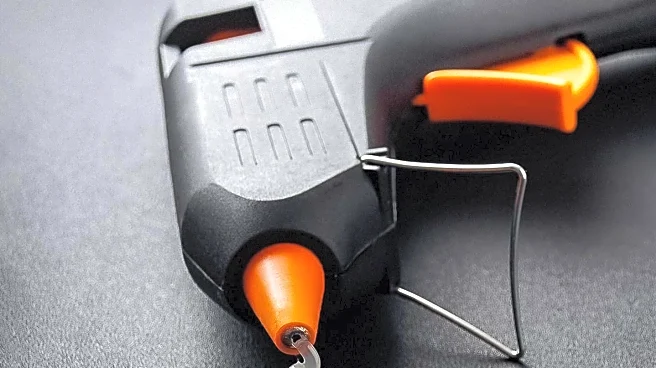What's Happening?
Scientists at the Technion – Israel Institute of Technology have created a smart biological adhesive that mimics the natural sticking ability of mollusks, offering a potential alternative to traditional stitches and staples used in surgeries. This new
material can bond to tissues within seconds and safely biodegrade inside the body, reducing the invasiveness and potential complications associated with current methods. The development, led by Dr. Shady Farah, utilizes catechols, chemical groups found in mollusks, to create strong bonds even in wet conditions. The adhesive is composed of a polymer-based hydrogel, primarily made of water and natural, biocompatible substances, allowing it to be recognized as tissue-friendly. It also features antibacterial properties, which could significantly reduce postoperative infections.
Why It's Important?
The introduction of this smart biological glue could transform surgical practices by providing a less invasive and more tissue-friendly method for closing wounds. Traditional methods like stitches and staples can lead to infections and are often painful, whereas this new adhesive offers a safer alternative with fewer complications. The adhesive's ability to prevent infections is particularly significant, as postoperative infections are a major concern, affecting millions annually. By reducing the risk of infections and improving cosmetic outcomes, this development could enhance patient recovery and reduce healthcare costs associated with surgical complications.
What's Next?
The Technion team plans to test the adhesive in large-animal models that closely resemble human physiology, a crucial step before clinical trials. These tests are expected to begin within the coming year, with the aim of moving on to human trials subsequently. If successful, this adhesive could be integrated into surgical practices, offering a new standard for wound closure and potentially improving surgical outcomes globally.
Beyond the Headlines
Beyond its immediate medical applications, the development of this adhesive highlights the potential of biomimicry in advancing medical technologies. By learning from nature's chemistry, researchers can create innovative solutions that address longstanding challenges in healthcare. This approach not only offers practical benefits but also encourages a deeper understanding of natural processes and their applications in technology.
















